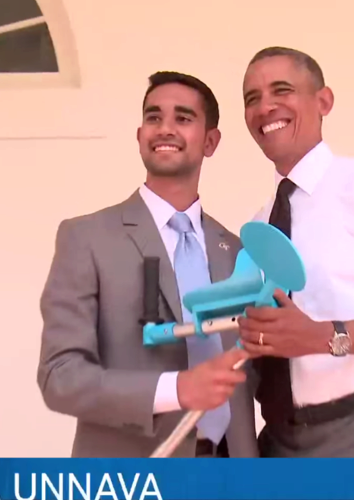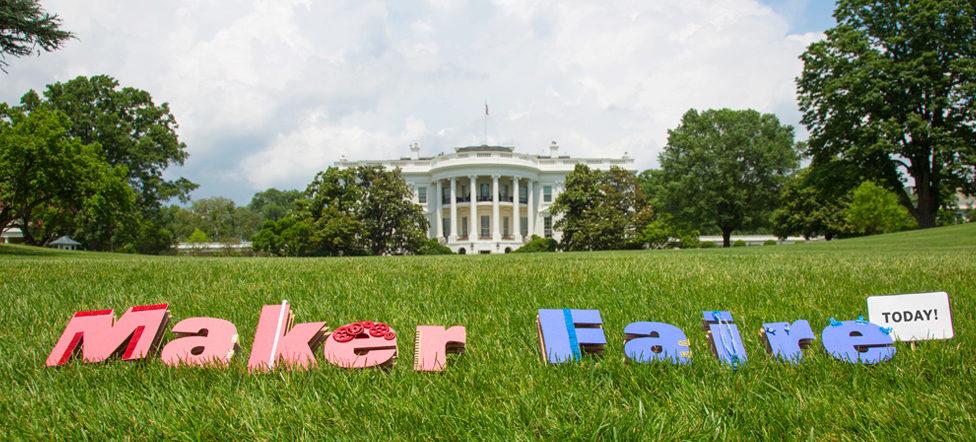
Georgia Tech was in the spotlight on June 18 during the White House’s first Maker Faire. Not only does Tech and its Invention Studio frequently get mentioned as a model for other organizations to follow, but the Institute was one of just three schools in the nation (along with Stanford and MIT) to have a student present a project to President Obama and the other dignitaries and policy-makers in attendance.
The project chosen to represent Tech was the Better Walk crutch, which competed in the 2014 Inventure Prize. The brainchild of biomedical engineering major Partha Unnava, Better Walk is a name to keep an eye on, and an example of how a good idea and some engineering know-how have the potential to make a difference in the lives of thousands of people.
From the White House press release:
When Partha Unnava, of Atlanta, GA, broke his ankle playing basketball, he made an important discovery—he hated crutches. After spending six weeks hobbling and aching, he decided that it was time to make his attempt at fixing a 5,000-year-old problem. Unnava, now a fifth year Biomedical Engineering student, helped to develop the Better Walk Crutch, which reduces pain and fatigue for crutch users and launched in 2013 at Georgia Tech. Better Walk has since participated in Zero to 510—a medical device accelerator program for start-ups, raised $150K in seed funding from venture capital groups, and obtained letters of intent from orthopedic surgeons who are passionate about bringing this product to the marketplace.
The first-ever White House Maker Faire featured over 100 Makers from more than 25 states, and included more than 30 exhibits. The President viewed a subset of these exhibits (including Better Walk) representing the incredible range of creativity and ingenuity unlocked by the Maker movement. Following his tour of the White House Maker Faire, the President delivered remarks to an audience of entrepreneurs, students, business leaders, mayors, and heads of non-profit organizations.
Designed to emphasize the important role that manufacturing and entrepreneurship play in the American economy, the event also served as the launching point for a wide range of initiatives, grants, and awards designed to foster innovation and support among those already working in the maker space.
Georgia Tech is the recipient of one of those awards, a DARPA MENTOR2 award, which will support the work of aerospace engineering professor Daniel Schrage who has developed a high school education program introducing students to design-manufacturing infrastructure concepts and practices. The MENTOR2 program supports the development of teaching materials aimed at students who are either headed towards or currently working in the uniformed services, with a focus on understanding, diagnosing, repairing, and adapting high-tech equipment in low-tech environments. MENTOR 2's project-based curricula – which will incorporate novel tools related to design, prototyping, and product evaluation – will give students a deeper understanding of modern electromechanical systems and an enhanced ability to maintain and adapt these systems to changing needs.
More information:
